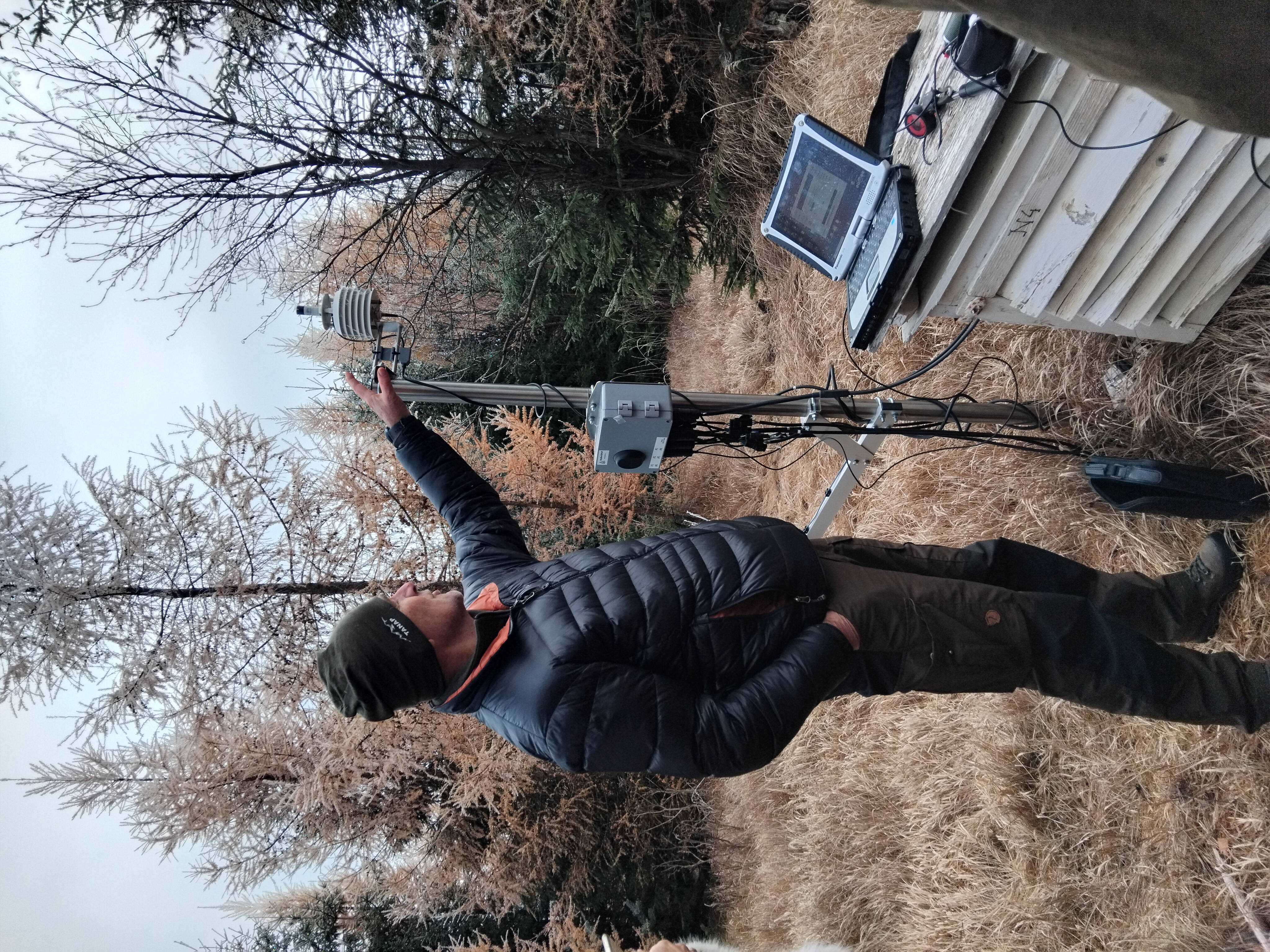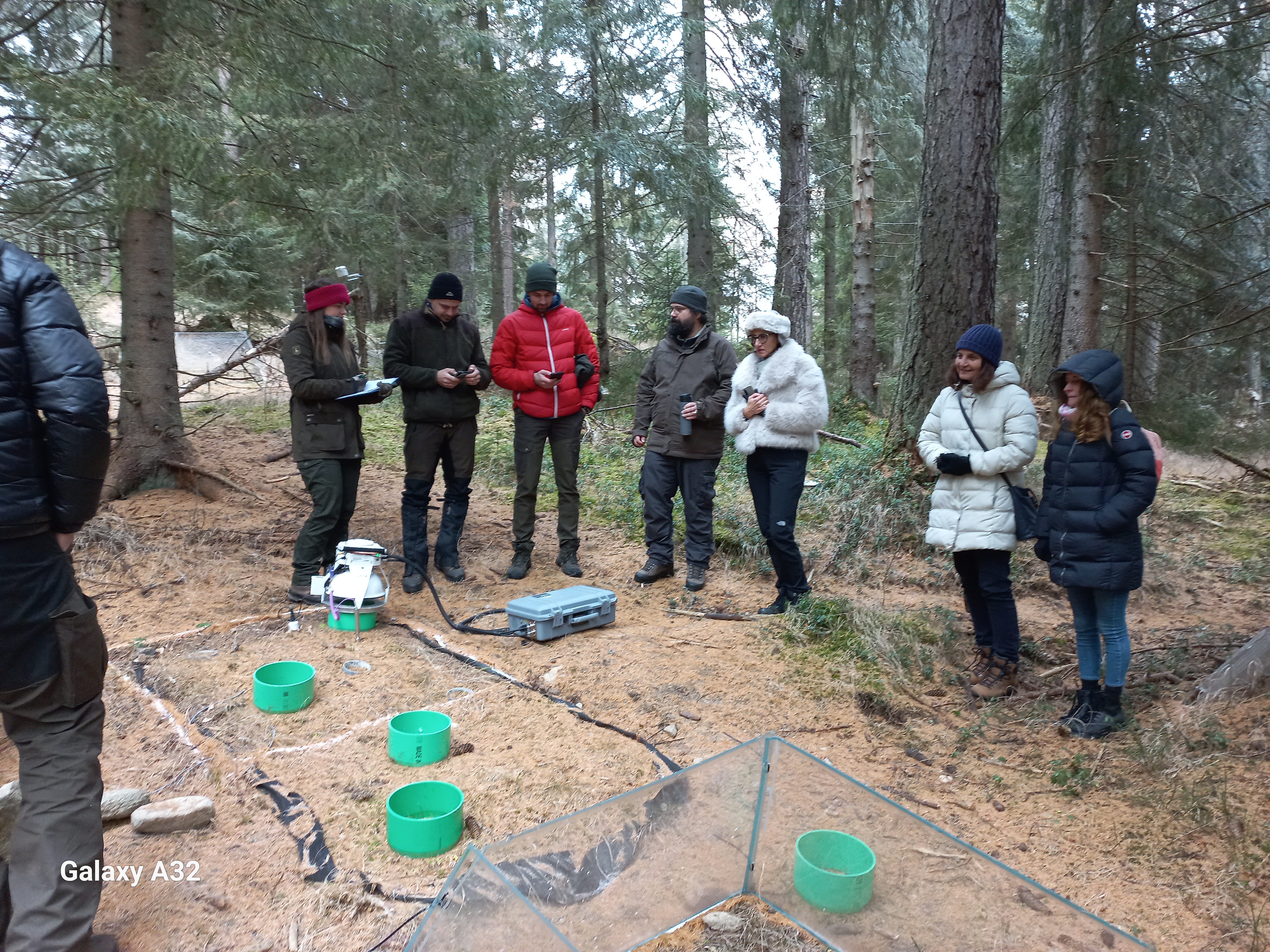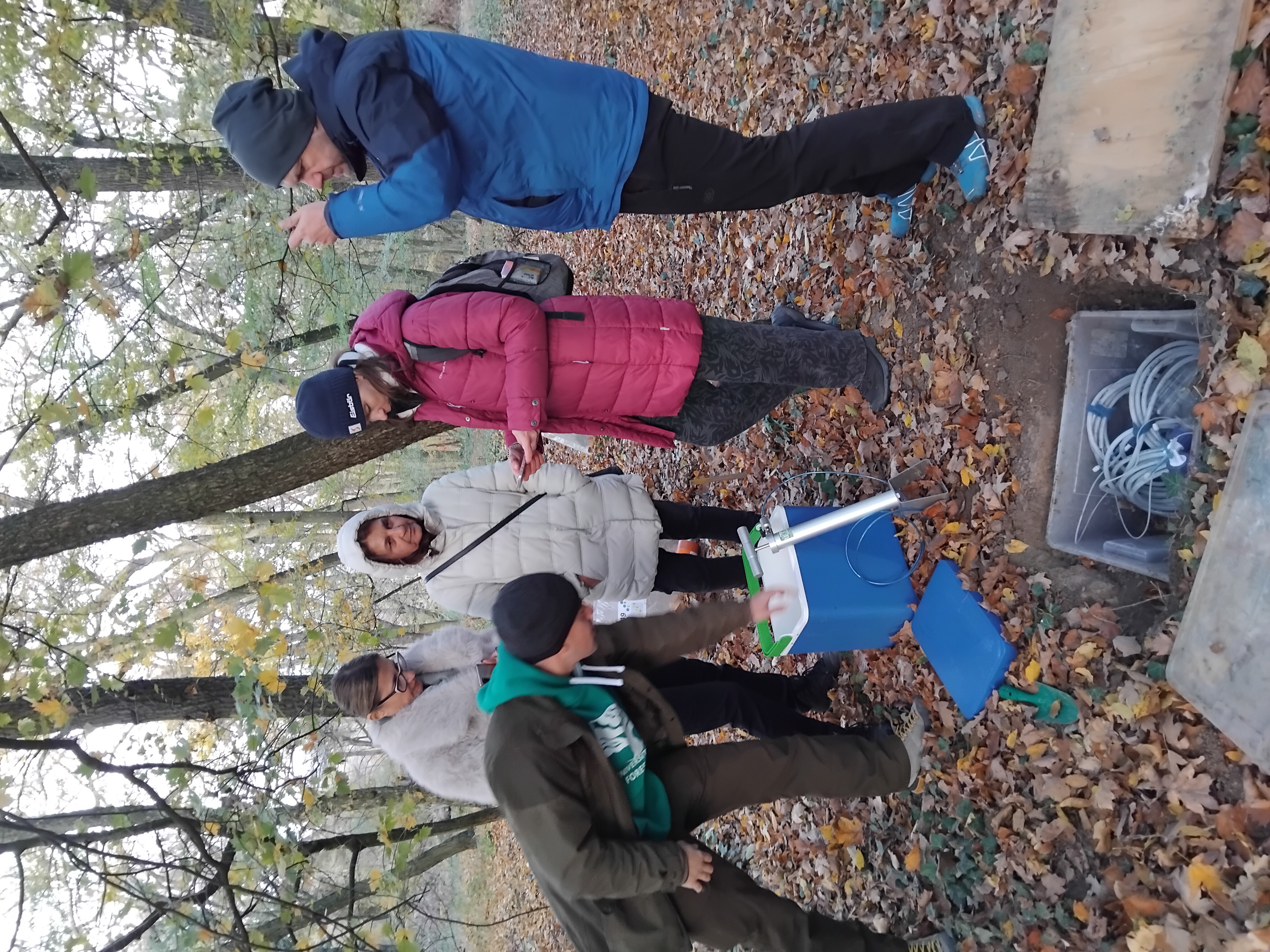Representatives of LTER Bulgaria visited LTER Slovakia
Researchers of the LTER Bulgaria - Dr. Radka Fikova, Dr. Lyudmila Lozanova (both Institute of Biodiversity and Ecosystem Research at the Bulgarian Academy of Sciences), assoc. prof. Sonya Damyanova and Dr. Pavel Pavlov (both University of Forestry, Sofia) visited LTER Slovakia on 13-15 November 2024.
The exchange of experience from LTER research and national networks development were the main topics of the visit. LTER Bulgaria researchers were specifically interested in the aquatic chemistry and carbon cycle measurements and the programme was shaped accordingly.
The first day of the visit was devoted to presentation of both national networks, their sites and activities. The hybrid meeting gathered more than 20 researchers and PhD students from ILE-SAS in Nitra and Bratislava, Technical University of Zvolen, IBER-BAS and UF, Sofia. The presentation of LTER Bulgaria was followed by presentations of LTER sites Belasitsa and Petrohan-Ponor. Then the LTER Slovakia was presented, including the network history, brief introduction to all sites and platforms, and information on the research scope, measurements as well as problematic issues of research completion by missing standard observations. The issues of common interest were discussed, including chemical analyses of water.

We visited the LTER site Tatra National Park the next day, namely its two plots – one in the area damaged by windstorm in 2004, the second one in undamaged forest. Here we discussed and demonstrated eddy covariance, soil respiration and sap flow measurements.

In the third day was presented the LTSER platform Trnava by movie and then we visited the LTER site Báb. The soil respiration measurement of the CALTER project was ongoing at the site – similarly as previous day in Tatra Mts. The LTER Bulgaria researchers were interested in the experiment ongoing in the site, equipment installed at the site, especially for lysimetric measurements. Researchers of both national LTER networks plan close cooperation in the future.

Reported by Dr. Ľuboš Halada